Interview: Poet Leslie Adrienne Miller on ‘Y’
|
|||||||||||||||||
|
The scholar John Rodden calls the literary interview a “fully-fledged genre.” I used to be skeptical, but after assigning my students at The College of Saint Rose to speak with an author, I’m more inclined to think the literary interview qualifies as a distinct form of performance. I put out a call on Facebook and Twitter: Would you speak to a college student about your book? I asked. Sure, they said. Review copies were sent, students selected authors, read and researched their work, and asked questions. - Daniel Nester, Contributing Word Editor |
POET LESLIE ADRIENNE MILLER ON HER COLLECTION OF POEMS, ‘Y’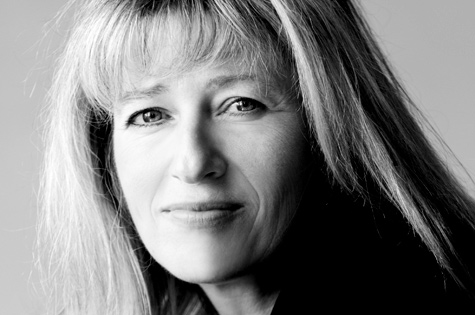 |
||||
INTERVIEWED BY
|
Leslie Adrienne Miller is an award-winning poet, mother, world traveler, and professor of English at the University of St. Thomas in St. Paul, Minnesota. She has been writing since the age of 11 and discovered contemporary poetry in college. Leslie has published six collections of poetry: Staying Up for Love, Yesterday Had A Man In It, Eat Quite Everything You See, Ungodliness, The Resurrection Trade, and her most recent collection entitled Y. One reviewer calls the book as “full of hints and clues, ever pressing us toward an illuminating insight that will, quick as lightning, return us to our darkness.” Leslie took time out of her busy teaching schedule to join me via email to discuss Y. DANIELLE DEMICHELE: The poems in Y discuss the child who is enigmatic and not necessarily understood. You did a great deal of research in child psychology and child development when you were preparing to write this book. I am majoring in Special Education so I work with these types of children often. Were you ever interested in these areas before writing this book? LESLIE ADRIENNE MILLER: I think probably all children are “enigmatic and not necessarily understood” when it comes to the adults in their lives. Of course, we have all been children, but so much of our physical memory of being children disappears as we age, and more importantly, the context has changed: the world we were children in disappeared with our childhood. DEMICHELE: Have you always been interested in writing poetry? How did you first realize you liked it? MILLER: I started writing when I was about 11, but I am not sure I knew what I was doing or that I had a name for it at first. I did have encouraging teachers in middle school and high school who recognized my affinity and gave it the name of poetry, but even then I had no idea living people did it or were able to make of it a vocation. College changed that radically as I encountered living poets and found my way to the magical books of contemporary poetry that lit my way forward. DEMICHELE: What inspired you to write Y? MILLER: Y is a natural outgrowth of my last collection of poems, The Resurrection Trade, which offered an extended meditation on the relationship between science and art focused very specifically through a series of medical images of pregnant women. Y focuses on the child. Y extends the meditation on (or mediation of) science and art, but in this collection, the subject matter and research materials include a more eclectic mixture of sources from the sciences (biological and social) on the Y chromosome; the social and cognitive development of children’s language acquisition; the fabled “wild children” of Germany and France; the rift between theology and science (belief and “fact”) that Darwin’s theories introduce into Western thought (and subsequent disciplinary divisions); some materials on the history and training of boy sopranos (a science of its own that links male physical and spiritual development); as well as historical and contemporary materials on the “reading” of the human face. Uniting these interdisciplinary forays are more traditional poems addressing the moral and linguistic development of male children, the philosophical conflicts inherent in this task for the adults who must manage this development, and the parallel dilemma of the contemporary poet for whom traditional poetic strategies like narrative and extreme subjectivity are increasingly inadequate and/or in need of renovation. Taken altogether, the poems and the “adversaria” in Y attempt to find connections between and among these areas of study as they probe the elusive mind/body, nurture/nature dichotomies in human male development—which cannot, of course, be seen or understood because they are dynamic, unstable, but they can, through metaphor’s momentary magic, be glimpsed, the only satisfaction we humans are likely to get in contemplating this complex of ideas. DEMICHELE: One of the lines that really stood out to me in Y was, “…raising the tent of bones in which he will harbor all the starry anomalies that a knowledge of God cannot undo.” It puts into words what children with autism are like. What were you thinking of when you were writing this part? MILLER: The idea of a child’s bones being like tent poles that slowly raise a body, an interior space that is both physical and psychological has often occurred to me in watching my own child grow. When they’re babies, so recently part of their mothers, we tend to think of them with more sense of ownership. We grew them inside ourselves, fed them from our bodies—but after that, motherhood is a long period of letting go, watching the body to which you gave life become more and more separate, a place where things will be hidden from the mother, a fascinating place certainly, a whole galaxy of its own, much of which you will never know. Of course, one of the biggest parts of the parent’s job then is to give the child a sense of right and wrong, life and death, danger and safety, all those abstract notions that the child encounters incrementally. “God” is perhaps a way of packaging all that learning about human limits. You know you have to teach the child these things even though you also know that the feral parts of him may win out. We can teach our kids about decency, kindness, and love, but knowing these things doesn’t change the fact that darker forces are still alive in him. DEMICHELE: Do you ever have difficulties writing or coming up with new ideas? I know when I write papers for class it can be challenging at times to get my words and thoughts together. MILLER: Writing for me is always torture. There is pleasure and satisfaction, but those are the results of having written something that pleases me, and I don’t get that pleasure and satisfaction every time I write. Sometimes I can squander days chasing an idea only to have it seem, finally, silly or dull. Sometimes I even envy people with jobs that stay at the workplace! Mine comes with me everywhere, even to sleep, and though writing is torture, not writing is worse torture! DEMICHELE: What do you do to feel ready to write? MILLER: I am a morning writer, always have been. I don’t think I’ve ever written a line worth saving after three in the afternoon. I also, much to the chagrin of those who have tried to live with me, do not like to see or talk to anyone in the morning before I write. I need strong coffee, but I don’t like to risk human interaction to get it, so I try to sneak out of bed and go to the desk just before dawn. It doesn’t always work, but there is definitely something about that state, not asleep but not quite awake, not yet engaged with others or the business of the day—that feeds poetry. If people try to talk to me in the morning, though, it’s gone, and I generally can’t get it back. DEMICHELE: Do you have any methods to prevent writer’s block? MILLER: Reading, reading, and more reading. DEMICHELE: If you could have any other profession besides a writer and a professor what would you chose? MILLER: Oh, now there is a question I can answer easily. I’ve always wished I’d studied library science. They’re not only the shepherds of books, but of information systems as they develop, and they get to spend their working hours in the hush of stacks, in that heavenly smell of paper and binding that I will always associate lovingly with my days as a graduate student hidden away in a little carrel with towers of books between me and the rest of the world. |
||||
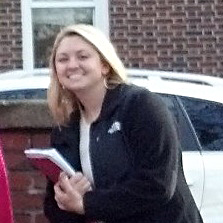 |
|||||
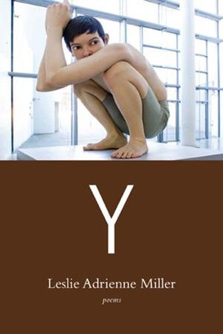 |
|||||
|
Visit Leslie Adrienne Miller… |
|||||










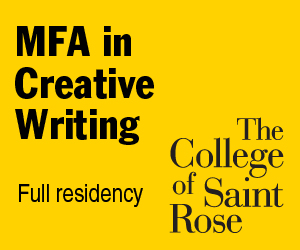
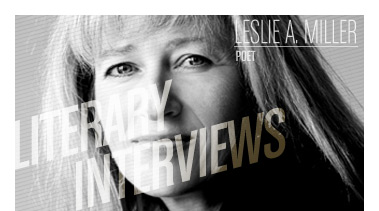
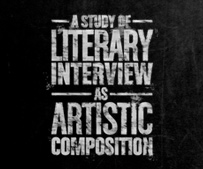














 Stated
Stated
Reader Comments